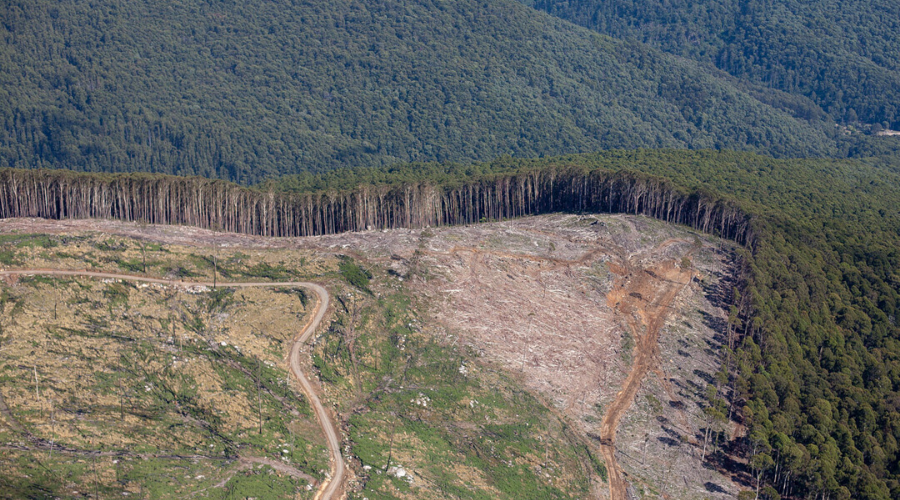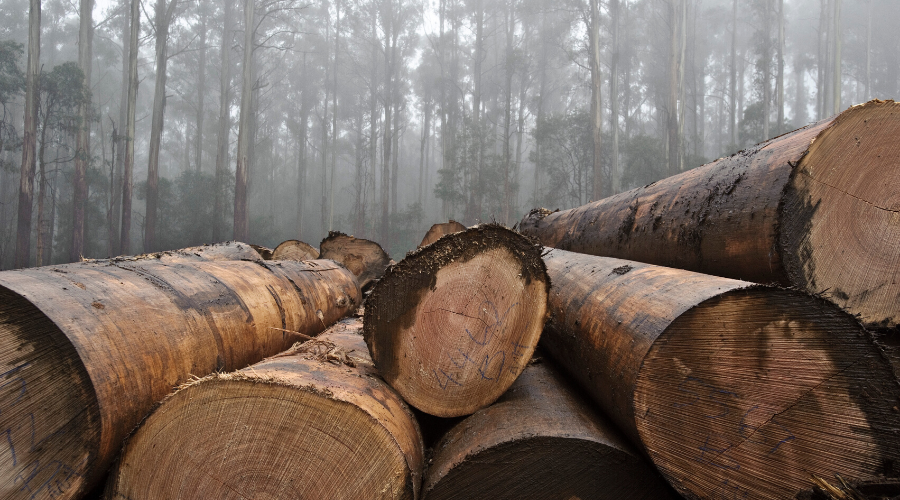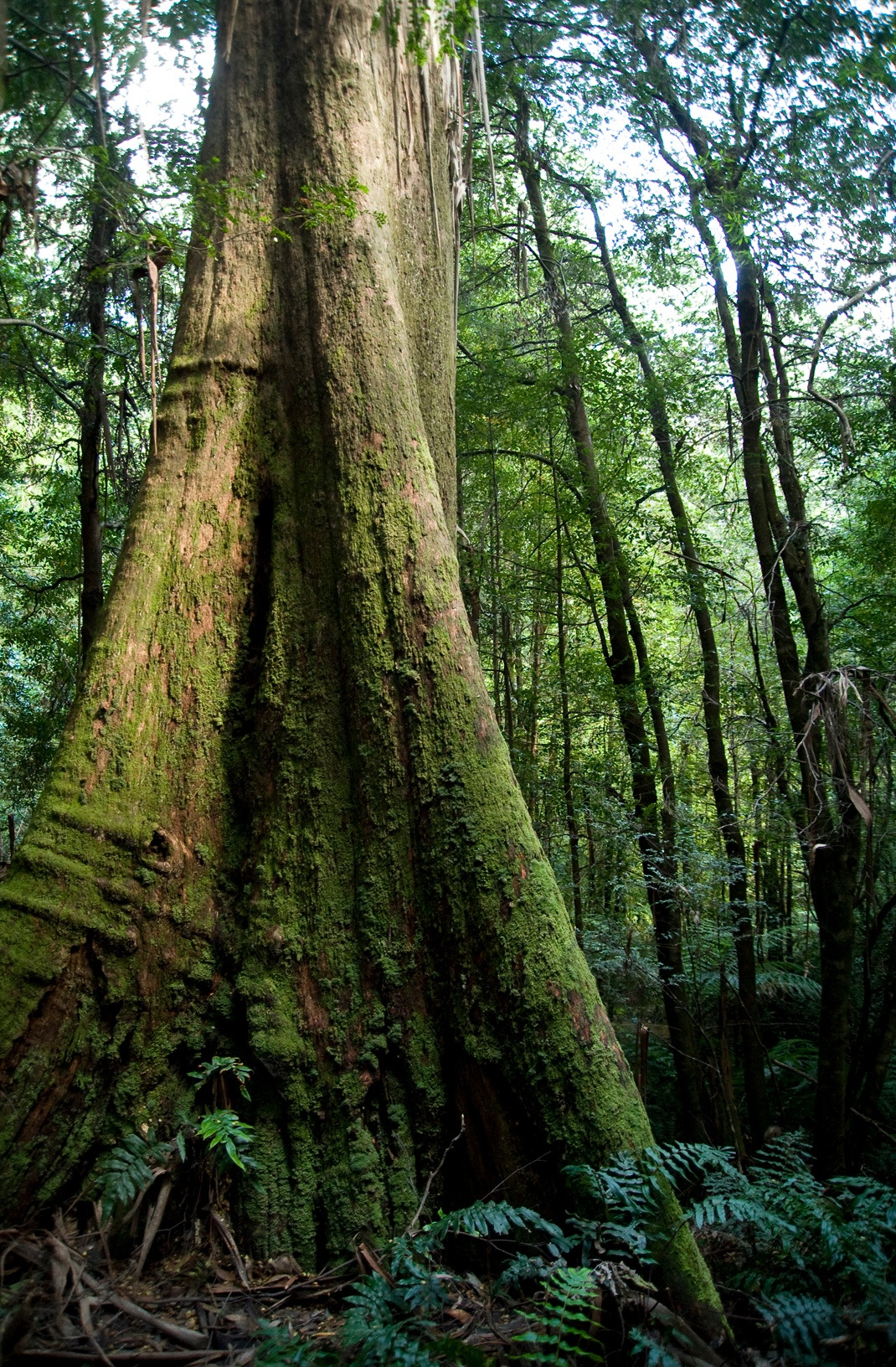News - 25 March 2020
Illegal logging in Australia - are you buying into it?
Could it be that the paper you’re printing on is produced from illegally sourced wood taken from Victoria’s state forests? Wood taken from forests that provide a home for our unique and endangered creatures, from a landscape already critically impacted by the catastrophic 2019/20 bushfires.
Globally, an exact estimate of the scale of illegal logging is difficult to make due to the illicit nature of the trade. Between 5 and 10 percent of the value of the global wood trade is believed to be illegal, costing the global community $206 billion each year. Illegal logging is linked to organised crime, civil wars, murder, corruption, wildlife extinction, and environmental destruction. So just pause your print job for a minute, while we explain the shocking revelations uncovered here in Australia.

Increasing numbers of Australian businesses and organisations are recognising the importance of sourcing policies that exclude unethical products. Adherence to the law is generally a first hurdle a product has to clear to even be considered ethical.
So, you might think we Australians would be able to protect ourselves from exposure to illegal logging. But you’d be grossly mistaken. Not only does up to 10 percent of timber imports come from high risk sources, but our evidence shows that illegal logging is also taking place in our very own forests.

Nippon-owned Australian Paper produce the Reflex, Victory, Planet Ark, Australian, and Brilliant White brands of office papers. Maybe you print using one of its products? If so you might want to reconsider your choice following new analysis from the Wilderness Society, which concludes that Australian Paper has illegally processed over half a million tonnes of logs sourced from Victoria’s native forests—and in all likelihood is still doing this today. This means that businesses, organisations and consumers committed to ethical procurement may be breaching their own policies when using Reflex and other Australian Paper brands, without even knowing it.
Australia first introduced its illegal logging law, the Illegal Logging Prohibition Act (ILPA), in 2012. ILPA had a five year ‘soft start’ period, during which the law was not enforced, to give businesses time to adapt. Now, in 2020, it’s time the law was applied, and illegal logging cleaned up.
Australia’s illegal logging laws have two main purposes—to help reduce the global trade in illegal logging, and also to protect Australian consumers from illegally sourced products. ILPA should help Australians go about our office printing and paper procurement, and carrying our take away dinner, with a clear conscience.

As a law, ILPA places similar obligations on both importers of timber and timber products, including paper, and on anyone processing domestically harvested logs—such as Australian Paper, which processes raw logs provided to it by Victorian government logging agency, VicForests.
Timber importers and processors are prohibited from dealing in illegal wood. They are also required to conduct due diligence on their supply, to identify and mitigate any risks of illegality. Where risks cannot be mitigated to a negligible level, alternative sources of wood must be used.
Australia’s not out on a limb here, ILPA is very similar to obligations placed on European businesses under the European Timber Regulation. ILPA generally enjoys the support of the Australian logging, paper and timber industry, which have recognised that consumers don’t want to be purchasing illegally sourced products.
The Wilderness Society conducted a due diligence assessment on Australian Paper’s VicForests supply chain. VicForests logs publicly owned native forests to supply wood to private businesses. Notoriously, VicForests has been the subject of numerous past and current court cases for logging outside of Victorian laws.
The Wilderness Society’s analysis used publicly available materials, including media stories, court records, and reports from universities, eNGOs and citizen scientists.
We found Australian Paper’s exposure to the risk of sourcing illegally logged wood to be staggeringly high. Our analysis shows that VicForests has been:
- Logging in areas where there was no legal right for it to do so
- Not implementing pre-harvest surveys for threatened species or threatened species protections
- Logging of rainforests and failure to sufficiently protect old-growth forest
- Ignoring directions from the state government environment department, which is the logging regulator
- Illegal logging inside drinking water catchments
- Failing to seek approvals from the Federal Government in breach of Federal laws designed to protect threatened species
- Not regenerating logged areas, despite a legal requirement to do so
- When building logging road, failing to follow legally required prescription
And we found numerous other breaches of Victorian laws. With widespread and systemic illegal activity by VicForests, and huge volumes of VicForests harvested logs processed by Australian Paper, the Wilderness Society was unable to find any means by which Australian Paper could successfully mitigate risks to an acceptable level. This led us to an inescapable conclusion: Australian Paper has committed clear and ongoing breaches of ILPA.

The Wilderness Society has filed a formal complaint with the Federal department responsible for enforcing Australia’s ILPA (Dept. Agriculture, Water & Environment), in what is set to be the first major test of the legislation. Meanwhile, we recommend that businesses, organisations and consumers seek alternative office papers to avoid inadvertently supporting such flagrant disregard for the law, and printing on paper from forests that have been illegally logged.
Already, well over 2000 Australian businesses and organisations have taken the Ethical Paper Pledge, to avoid Reflex Ultra White paper and use paper products that are native forest free, 100% recycled and FSC certified. Using our Ethical Paper Guide, you can be assured that you are making a sustainable and ethical choice every time you purchase copy paper. And you can print away happy in the knowledge that you’re not supporting illegal logging, and that you’re not playing a part in destroying Victoria’s last grand forests and the remarkable animals that call them home. But don’t let your new sense of relief keep you from reducing your printing and please recycle that used paper.